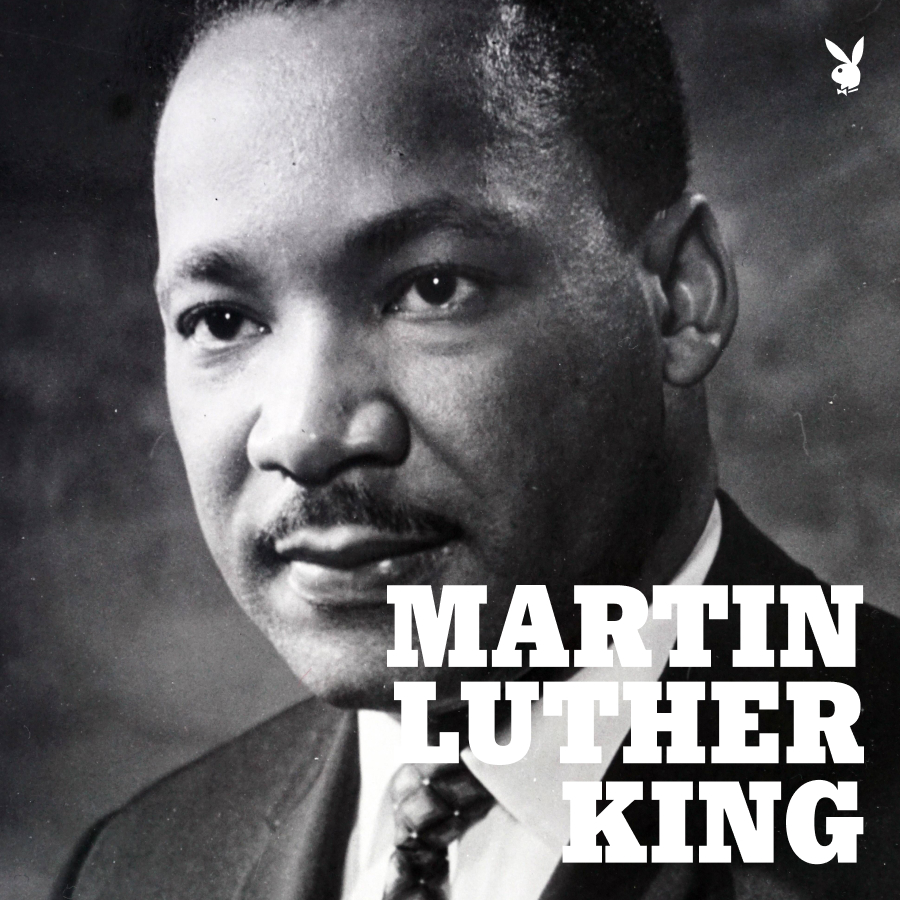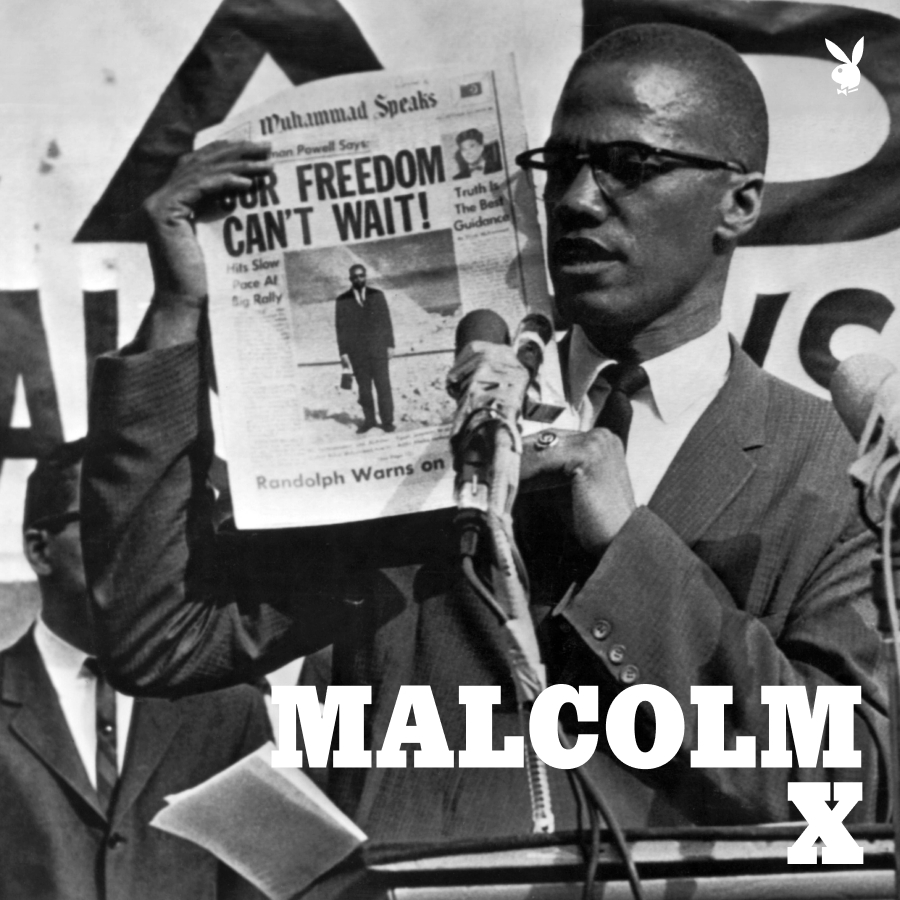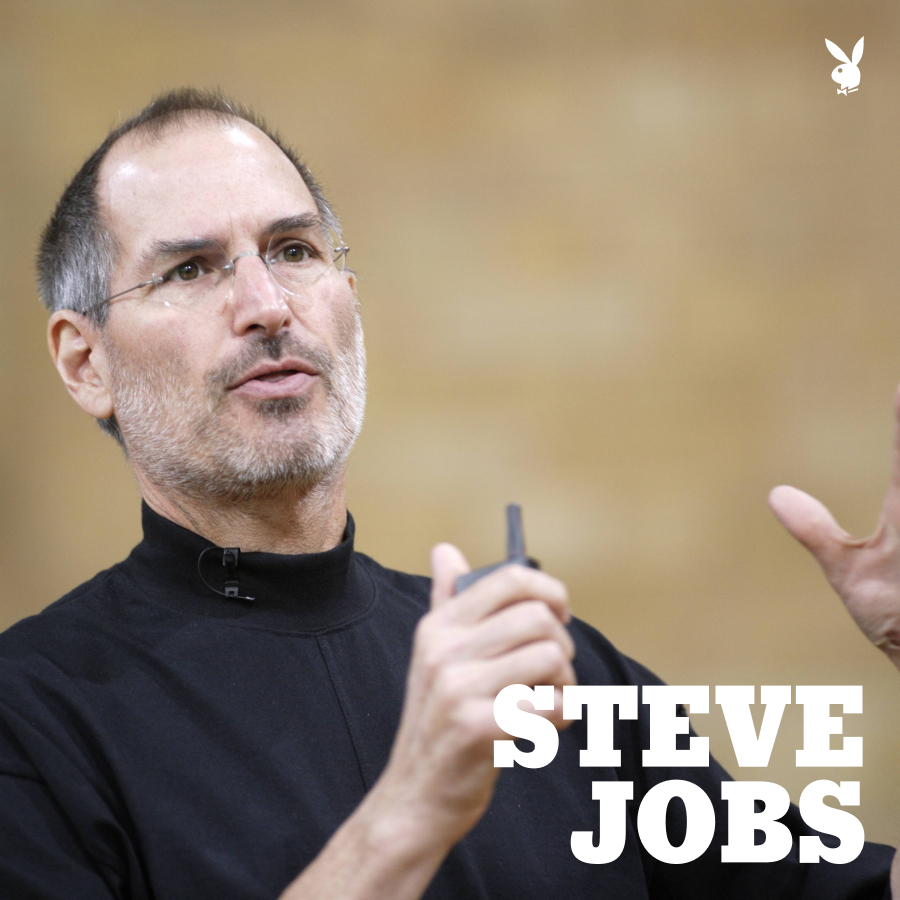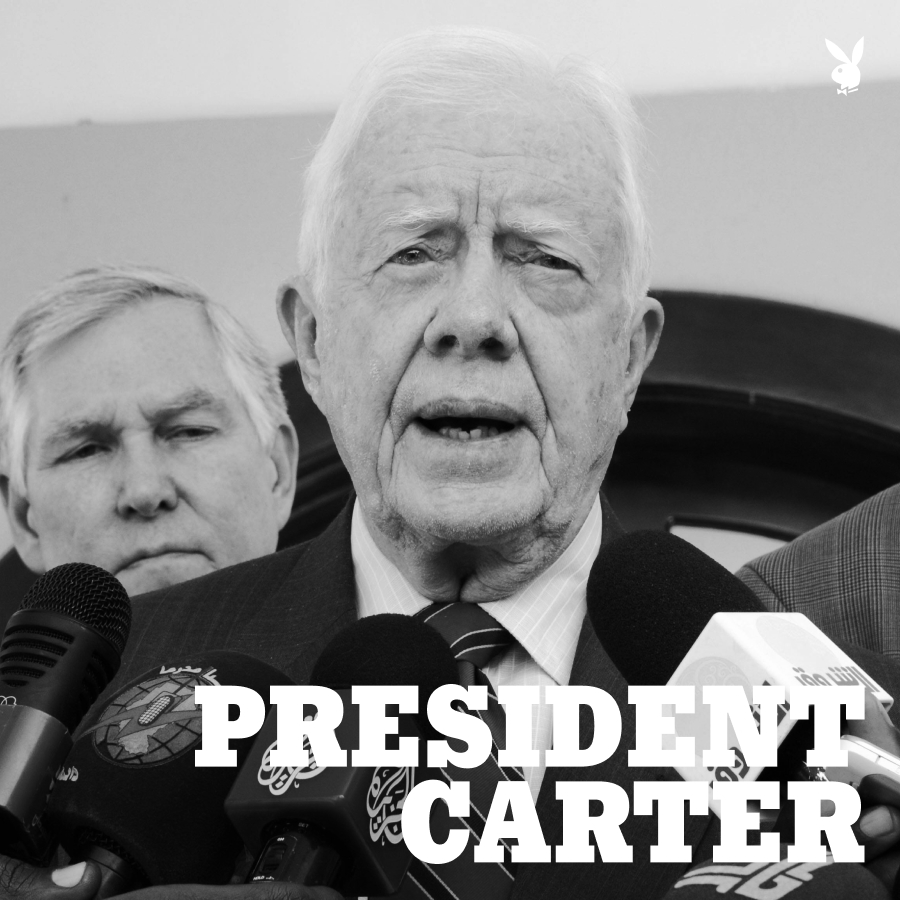While PLAYBOY magazine cut its teeth on featuring stunning women over the years, it’s also earned another reputation that most readers relish mentioning, always with a bit of a smirk: “I read it for the articles.”
In our 72 year history, we’ve conducted the Playboy Interview with hundreds of key figures across politics, music, film, tech, and more, often catching our subjects in pivotal moments of their careers. So when Justice Samuel Alito recently asked a courtroom about Pornhub: “Is it like the old Playboy magazine? You have essays there by the modern-day equivalent of Gore Vidal and William F. Buckley Jr.?”, he was referring to a form of journalism we have long taken pride in.
PLAYBOY Magazine is back! Preorder your copy HERE
If Alito’s comment has you wondering what PLAYBOY journalism is really like, revisit 5 of our most high-profile interviews so you can see what all the fuss is about.

King interviewed with PLAYBOY in January 1965, ten years into his career and only three years before he would be assassinated by James Earl Ray at the Lorraine Motel in Memphis, Tennessee. It captures a snapshot in history, both of King’s life and the civil rights movement itself, and is in turn inspiring and heartbreaking.
Key quote from King: “Another time I will never forget was one Saturday night, late, when my brother telephoned me in Atlanta from Birmingham—that city which some call “Bombingham”—which I had just left. He told me that a bomb had wrecked his home, and that another bomb, positioned to exert its maximum force upon the motel room in which I had been staying, had injured several people. My brother described the terror in the streets as Negroes, furious at the bombings, fought whites. Then, behind his voice, I heard a rising chorus of beautiful singing: ‘We shall overcome.’ Tears came into my eyes that at such a tragic moment, my race still could sing its hope and faith.”

Another key civil rights leader known for his incendiary views, Malcolm X was the subject of The Playboy Interview in 1963, just two years before MLK. PLAYBOY openly admits in the introduction of the interview that Malcolm X will cause shock and outrage, saying, “Our own view is that this interview is both an eloquent statement and a damning self-indictment of one noxious facet of rampant racism. As such, we believe it merits publication – and reading.”
Key quote from Malcolm X: “First of all, the white man must finally realize that he’s the one who has committed the crimes that have produced the miserable condition that our people are in. He can’t hide this guilt by reviling us today because we answer his criminal acts – past and present – with extreme and uncompromising resentment. He cannot hide his guilt by accusing us, his victims, of being racists, extremists and black supremacists. The white man must realize that the sins of the fathers are about to be visited upon the heads of the children who have continued those sins, only in more sophisticated ways. Mr. Elijah Muhammad is warning this generation of white people that they, too, are also facing a time of harvest in which they will have to pay for the crime committed when their grandfathers made slaves out of us.”


Lennon and Ono were possibly the most high-profile couple of their time when they did their Playboy Interview. Lennon’s status as a member of The Beatles meant all eyes were on him, but when he married Yoko Ono in March 1969, the couple was both worshipped and hated instantly. Fervor grew when photographer Annie Leibovitz took a now-iconic shot of the couple in 1981 for the cover of Rolling Stone magazine, which ran not long after this interview (also in 1981). It’s a beautiful, intimate look into two people who deeply fascinated the world.
Key quote from Lennon: “It’s better to fade away like an old soldier than to burn out. I don’t appreciate worship of dead Sid Vicious or of dead James Dean or of dead John Wayne. It’s the same thing. Making Sid Vicious a hero, Jim Morrison–it’s garbage to me. I worship the people who survive. Gloria Swanson, Greta Garbo. They’re saying John Wayne conquered cancer–he whipped it like a man. You know, I’m sorry that he died and all that–I’m sorry for his family–but he didn’t whip cancer. It whipped him. I don’t want Sean worshiping John Wayne or Sid Vicious. What do they teach you? Nothing. Death. Sid Vicious died for what? So that we might rock? I mean, it’s garbage, you know. If Neil Young admires that sentiment so much, why doesn’t he do it? Because he sure as hell faded away and came back many times, like all of us. No, thank you. I’ll take the living and the healthy.”

There’s a part of Steve Jobs in billions of us, and all you have to do is look at your smartphone to see it. Jobs was a chaotic genius, earning both passionate fans and vitriolic enemies as he carved out his path. The Playboy Interview with him was done in 1985, when he still called himself Steven Jobs and was only 29 years old. It’s an amazing read, especially knowing what he will do next as you read it.
PLAYBOY Magazine is back! Preorder your copy HERE
Key quote from Jobs: “When I came back from India, I found myself asking, What was the one most important thing that had struck me? And I think it was that Western rational thought is not an innate human characteristic. It is a learned ability. It had never occurred to me that if no one taught us how to think this way, we would not think this way. And yet, that’s the way it is. Obviously, one of the great challenges of an education is to teach us how to think. What we’re finding is that computers are actually going to affect the quality of thinking as more and more of our children have these tools available to them. Humans are tool users. What’s really incredible about a book is that you can read what Aristotle wrote. You don’t have to have some teacher’s interpretation of Aristotle. You can certainly get that, but you can read exactly what Aristotle wrote. That direct transmission of thoughts and ideas is one of the key building blocks of why we are where we are, as a society. But the problem with a book is that you can’t ask Aristotle a question. I think one of the potentials of the computer is to somehow … capture the fundamental, underlying principles of an experience.”

While many Playboy Interviews are in-depth explorations well-worth reading, the 39th president of the United States had an especially memorable one. Carter, who was president from 1977-1981, dropped some major bombs against his image in his 1976 interview about the topics of lust and adultery. Already drawing major attention for being a Southern Baptist running for the presidency, Carter admitted later in his life that the remarks “almost cost him the presidency.”
Key quote from Carter: ” I’ve looked on a lot of women with lust. I’ve committed adultery in my heart many times. This is something that God recognizes I will do–and I have done it–and God forgives me for it. But that doesn’t mean that I condemn someone who not only looks on a woman with lust but who leaves his wife and shacks up with somebody out of wedlock.”
Read more of The Playboy Interview Archives here.
